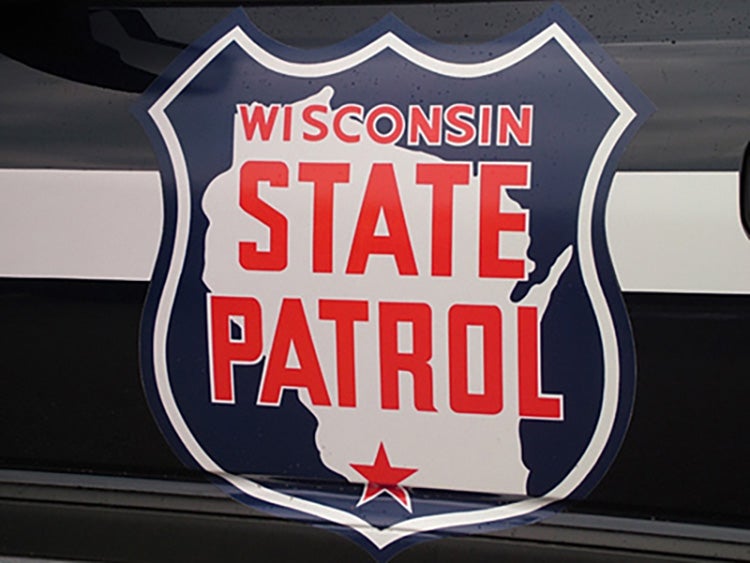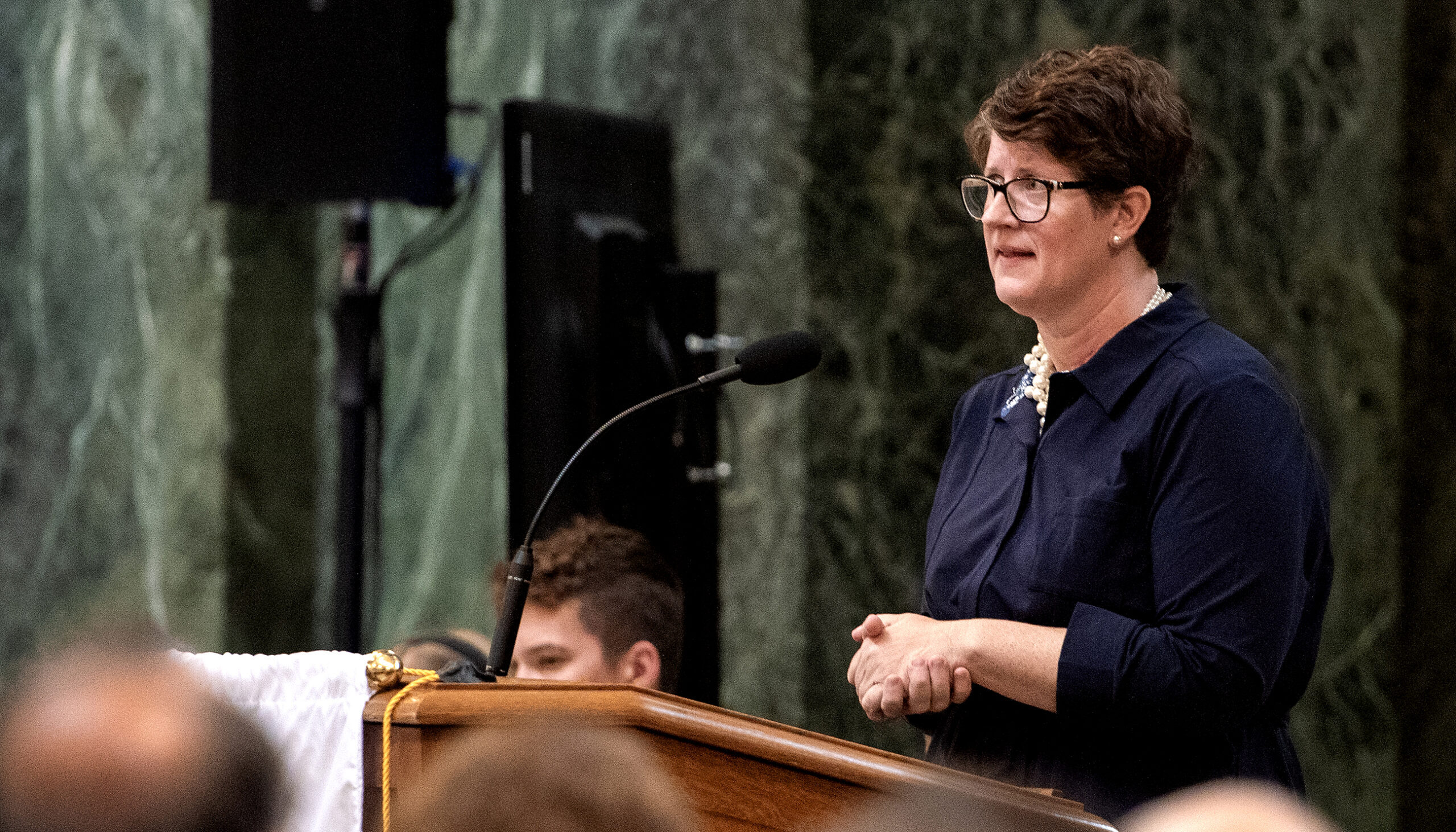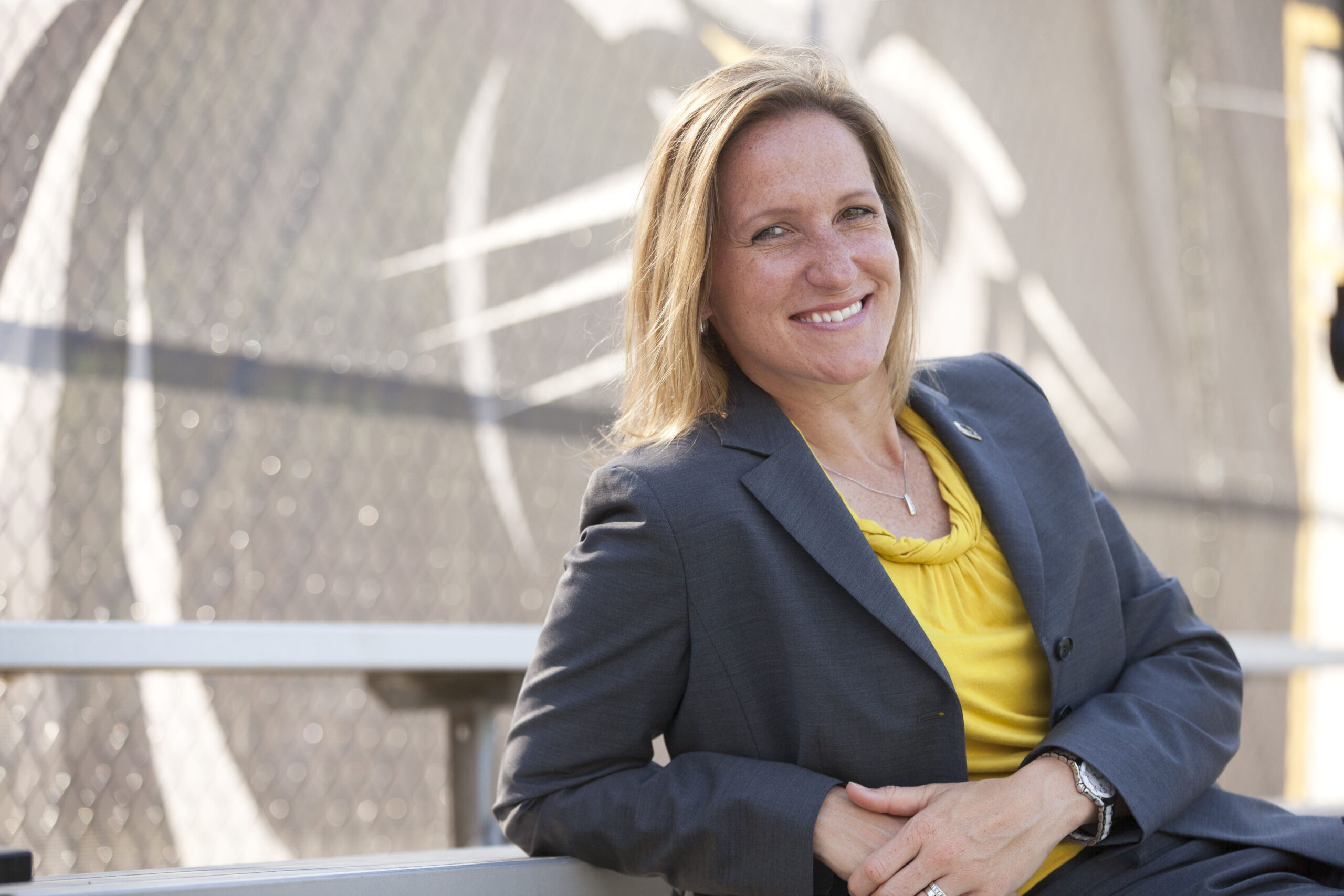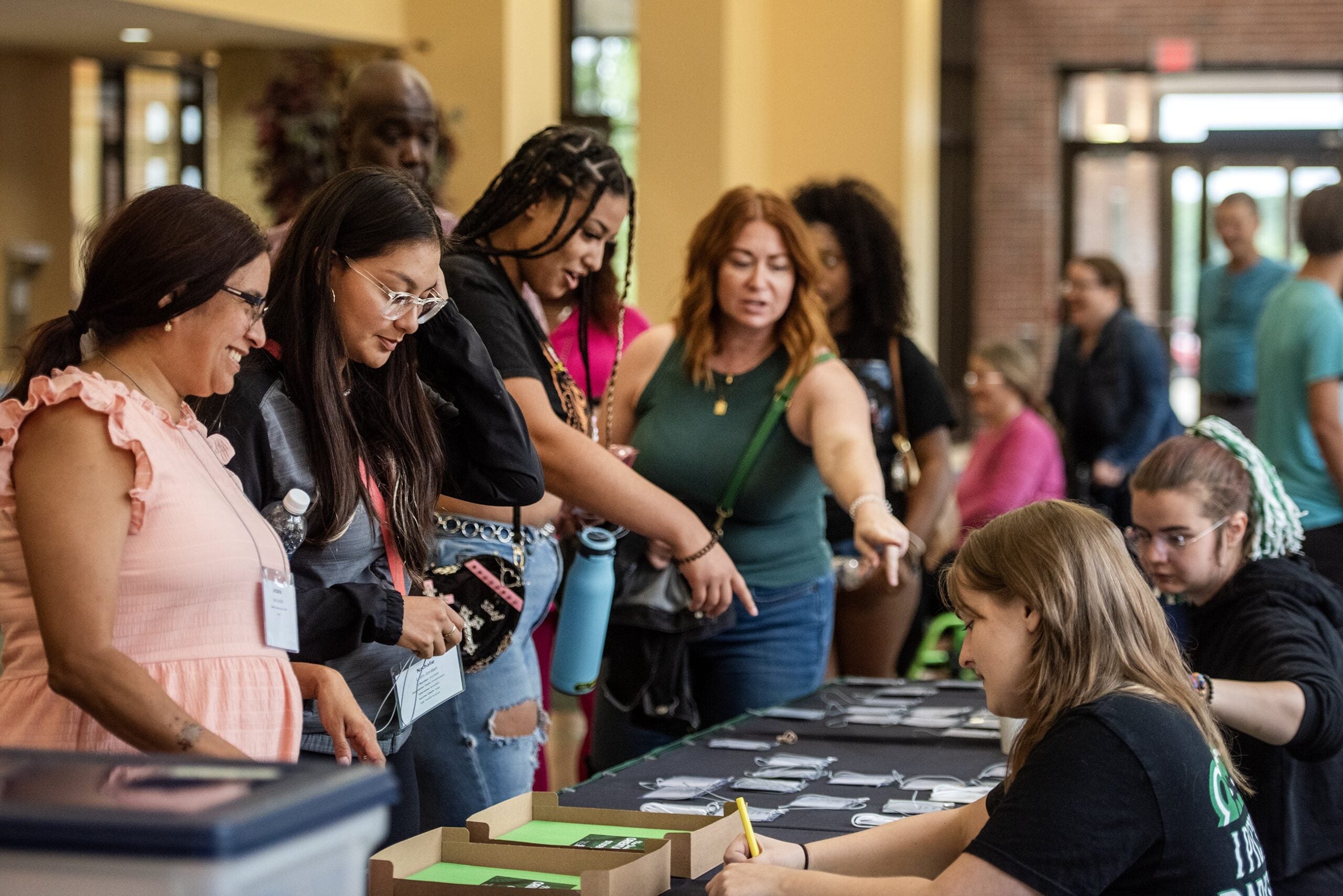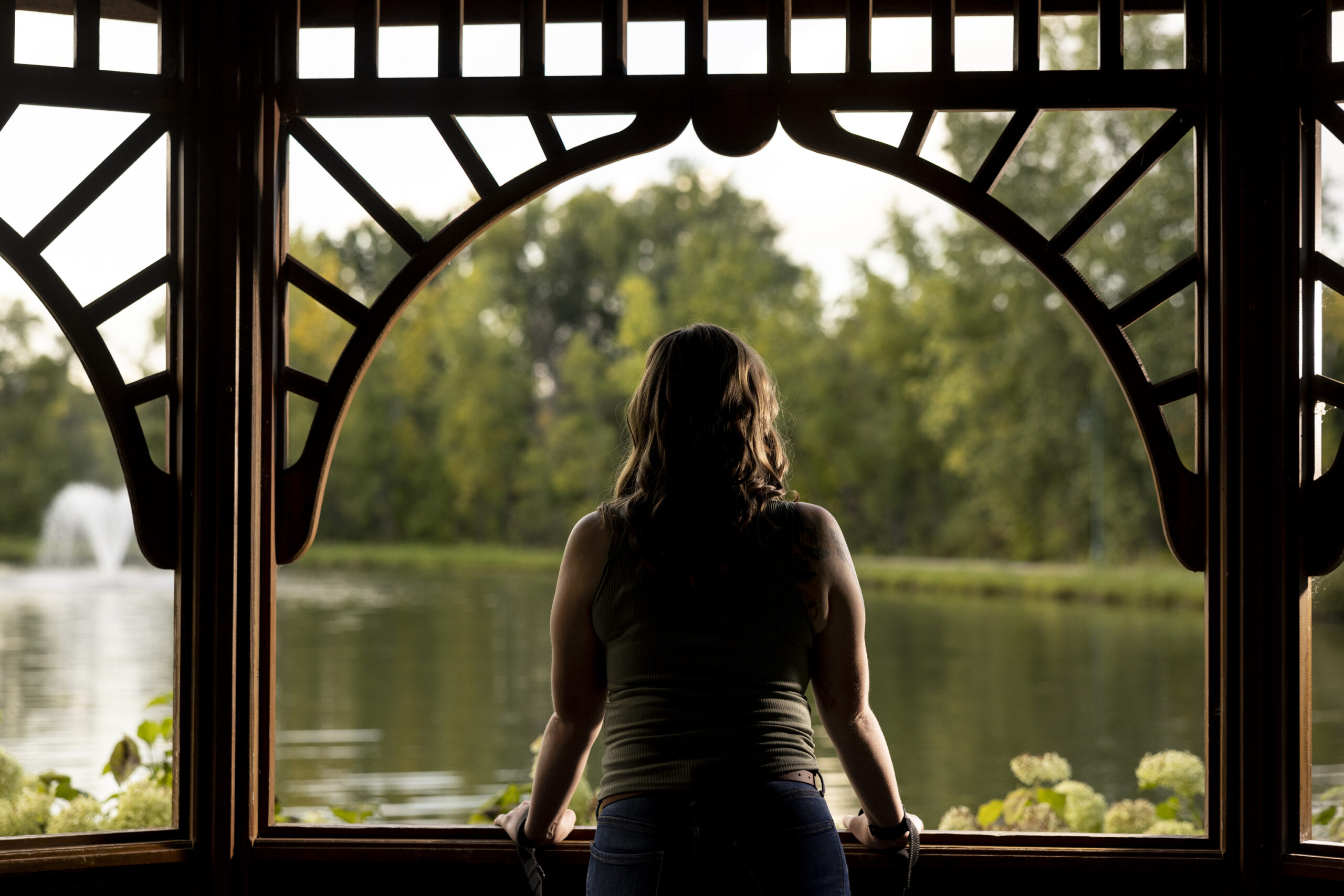Wisconsin State Patrol Superintendent Anthony Burrell said he’s looking to increase diversity within the agency as the recruitment period approaches in November.
Nearly 90 percent of Wisconsin troopers are white men.
Burrell, who was appointed by Gov. Tony Evers in January, recently spoke with Wisconsin Public Radio’s “The Morning Show” host Kate Archer Kent about how the department is working to diversify.
Stay informed on the latest news
Sign up for WPR’s email newsletter.

State Patrol Superintendent Anthony Burrell. Photo courtesy of Wisconsin State Patrol.
The interview has been edited for brevity and clarity.
Kate Archer Kent: What are your goals for increasing diversity?
Anthony Burrell: One of our goals is to do some targeted recruiting in areas like Milwaukee, Madison, Green Bay, the Wausau area, so that we can specifically target minority communities in those areas to seek interest for those that are looking to get into law enforcement.
KAK: How do you envision the State Patrol benefiting from more diversity in your ranks?
AB: We would like to see our agency, as many law enforcements across the country, would like to see a workforce of men and women that reflect the state itself, the community that they serve in. And that’s one of the goals our recruiting efforts will hopefully achieve.
KAK: Looking back at history, Phil Clark became Wisconsin’s first African-American trooper in 1962. How have we seen or not seen diversity in our troops and what does it mean having minorities in the ranks of state patrol?
AB: It’s important, again it goes back to what I mentioned before regarding the makeup of the communities in which we work and live. And Phil Clark, he opened the door for a lot of minorities such as myself in giving us opportunities that we probably at that time would’ve never been able to have. And he made it possible not only just by being a pioneer and in paving the way, but he also reached back into the community. What he did was made it a mission to go back into the community and encourage young men and young women, black, hispanic to get involved in law enforcement.
And that’s turned into some really great things. We’ve got a number of men and women that are on the patrol that have been able to do the same exact thing which is the reach back into the community. That’s one of the things that helps us to increase our diversity and our workforce across the state.
KAK: You have seen challenges in recruiting women up to this point, what are the challenges in recruiting more women to the job?
AB: I think most of it is the lack of interest in it. Law enforcement is a calling and it isn’t for everyone. So it takes a special person who’s willing to make that type of sacrifice. I know that many women look at law enforcement as a male dominated profession. But there are many women and there are many women leading departments across this great nation and some in this state. So there are opportunities there for many people to get into law enforcement. And I think no time is better than right now.
KAK: What are the common questions or concerns that your female applicants have when you are looking at recruitment?
AB: Well I think that it’s a common question, and it’s not necessarily specific from the women themselves, but it’s the three things we look at, the ability physically, mentally and educationally. The education requirement is 60 college credits to be in law enforcement in Wisconsin. However, the state patrol will waive that 60 college credits for up to five years so you can still join the patrol, and then you have up to five years to obtain your 60 college credits.
The next thing is the physical, can they do it. We encourage men and women to come in in some sort of physical shape because the profession itself can be demanding. You’re going to have to have some physical capabilities.
(The mental aspect) is a combination of the physical and educational, but also the demands of what we encounter on a day-to-day basis. We’re not just making traffic stops and writing tickets. We’re assisting at crash scenes, we’re responding to active shooter type events. We want individuals that have the capacity and the ability to respond and do their job professionally.
KAK: What about exposing youth to law enforcement?
AB: That is something that law enforcement is doing now, they’re shifting a lot of their recruiting efforts to much younger men and women through the high school area. They’re targeting those individuals to expose them to what law enforcement is about.
We offer a ride along program that gives them an opportunity to sit with a trooper or a motor carry inspector and see what they do on a day-to-day basis and have an opportunity to somewhat get exposed to the things that they do and ask questions. And then if there is interest, we also do an internship program and that’s done through some of the local tech colleges where an individual is selected and they’re actually earning credits through their school, but they’re working at one of our facilities and getting a full gamut of all of the things that we do.
Wisconsin Public Radio, © Copyright 2025, Board of Regents of the University of Wisconsin System and Wisconsin Educational Communications Board.
